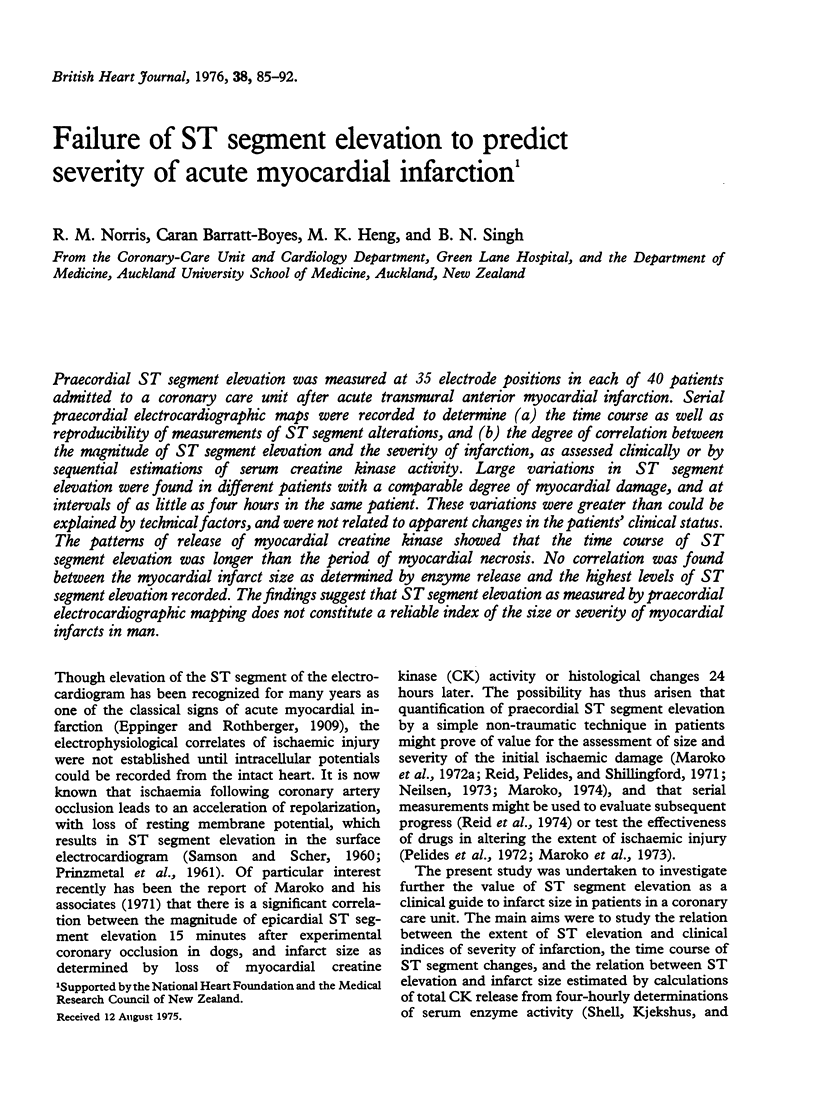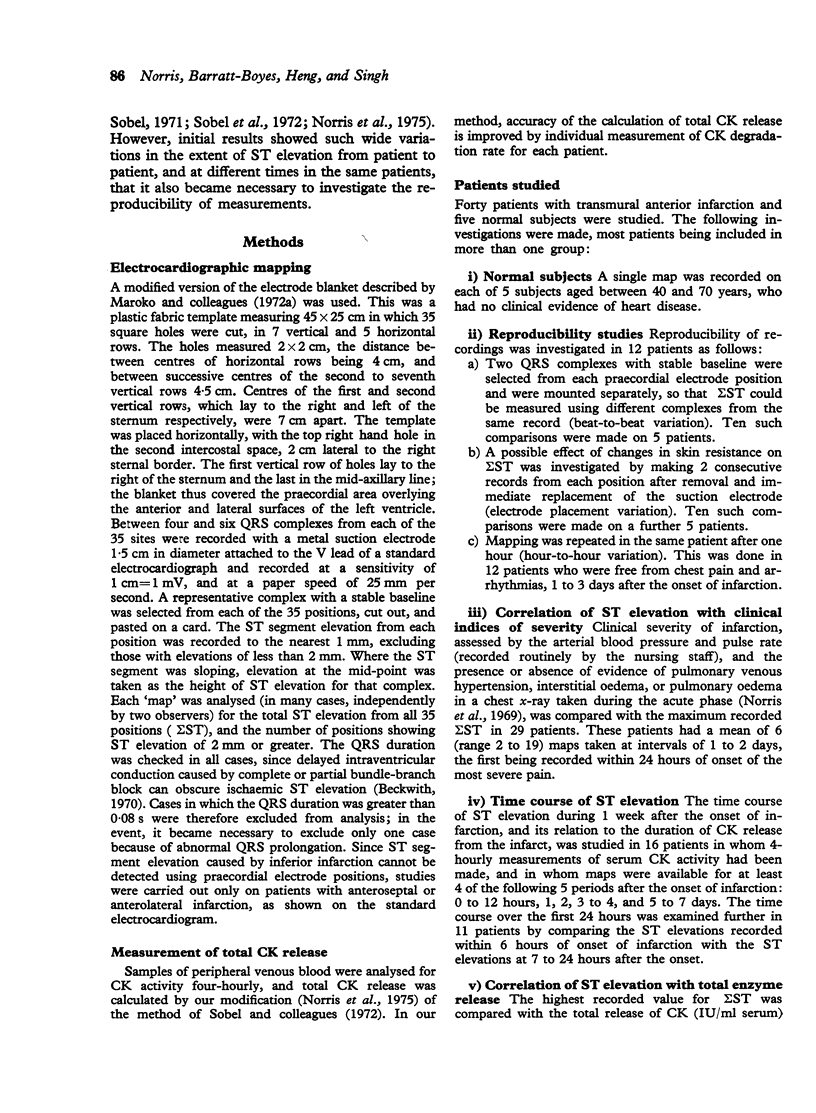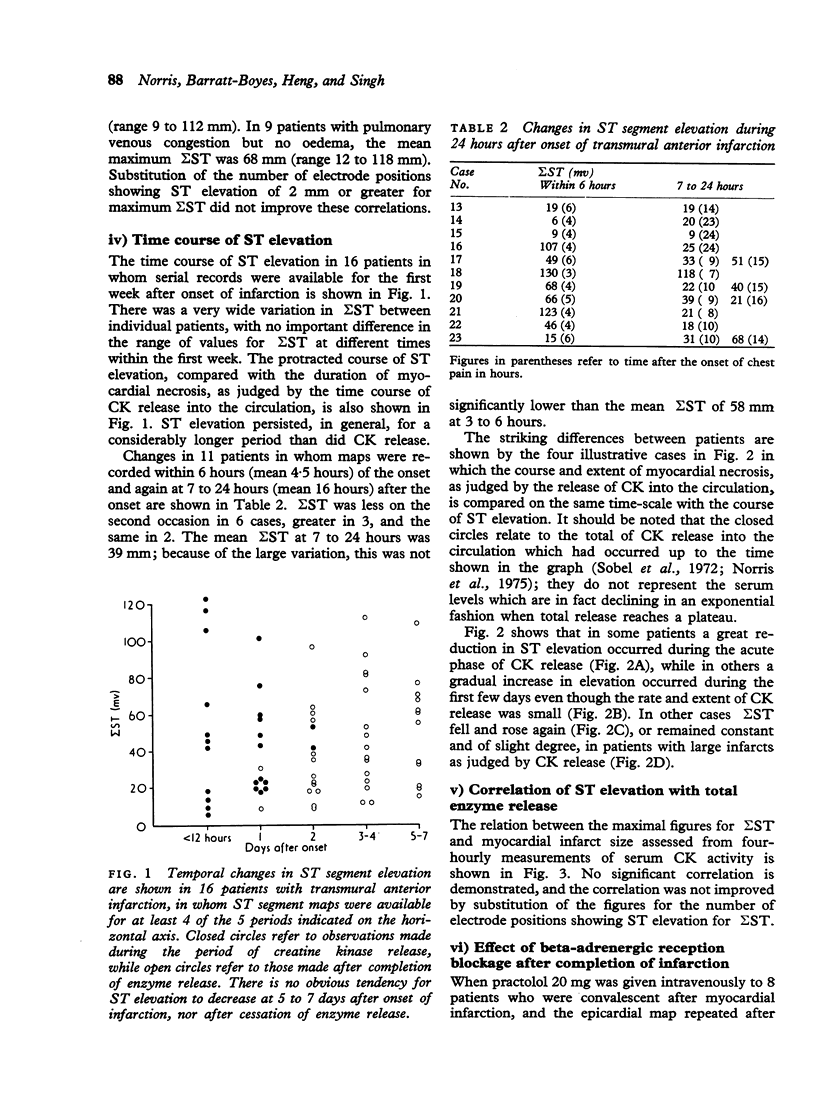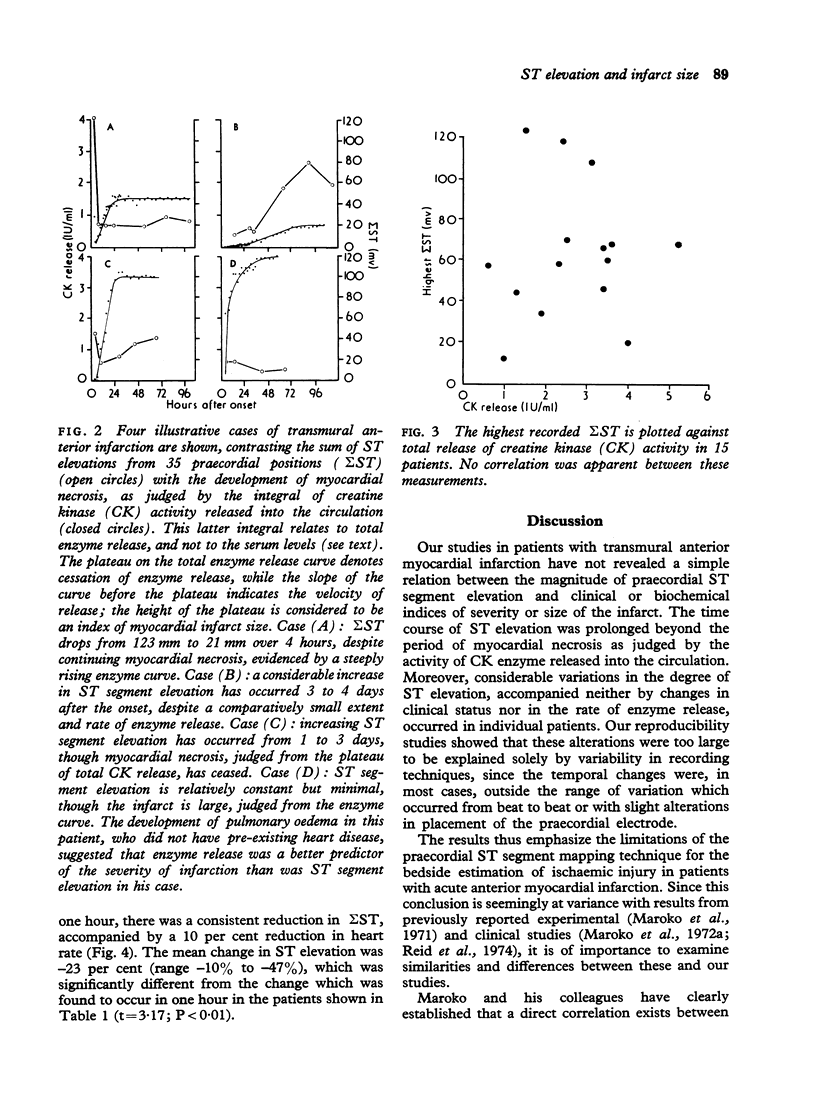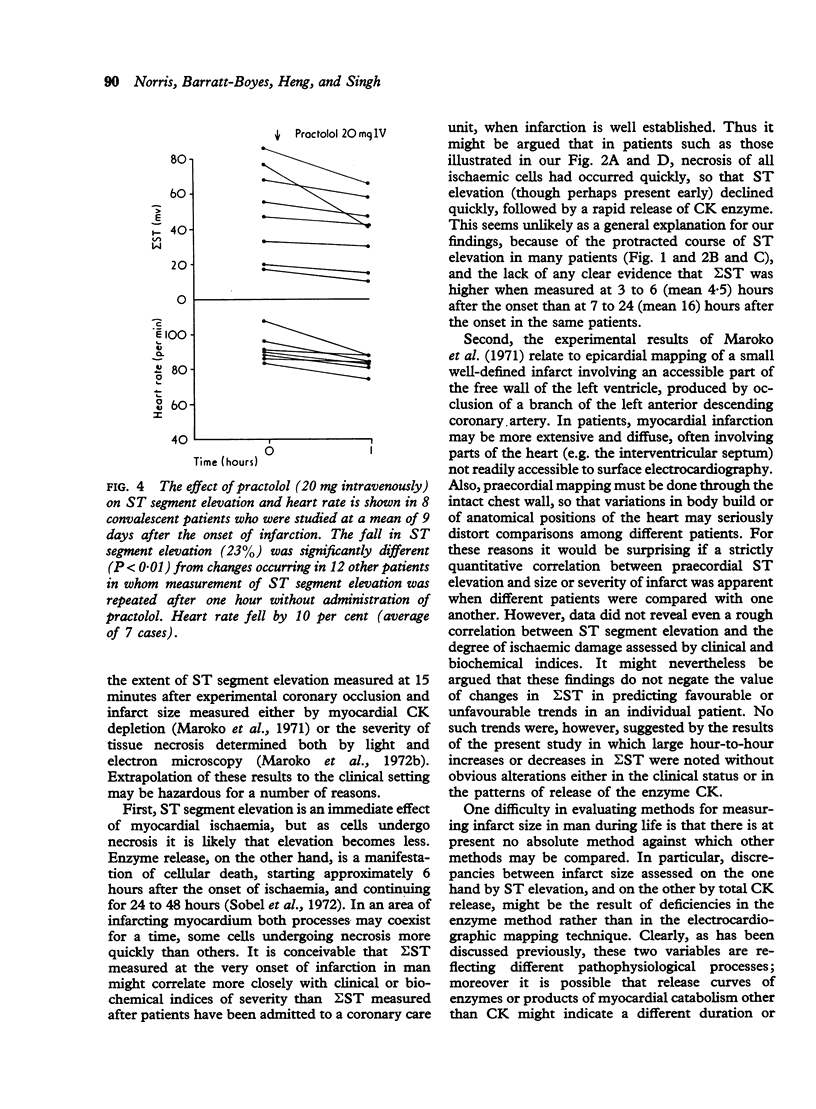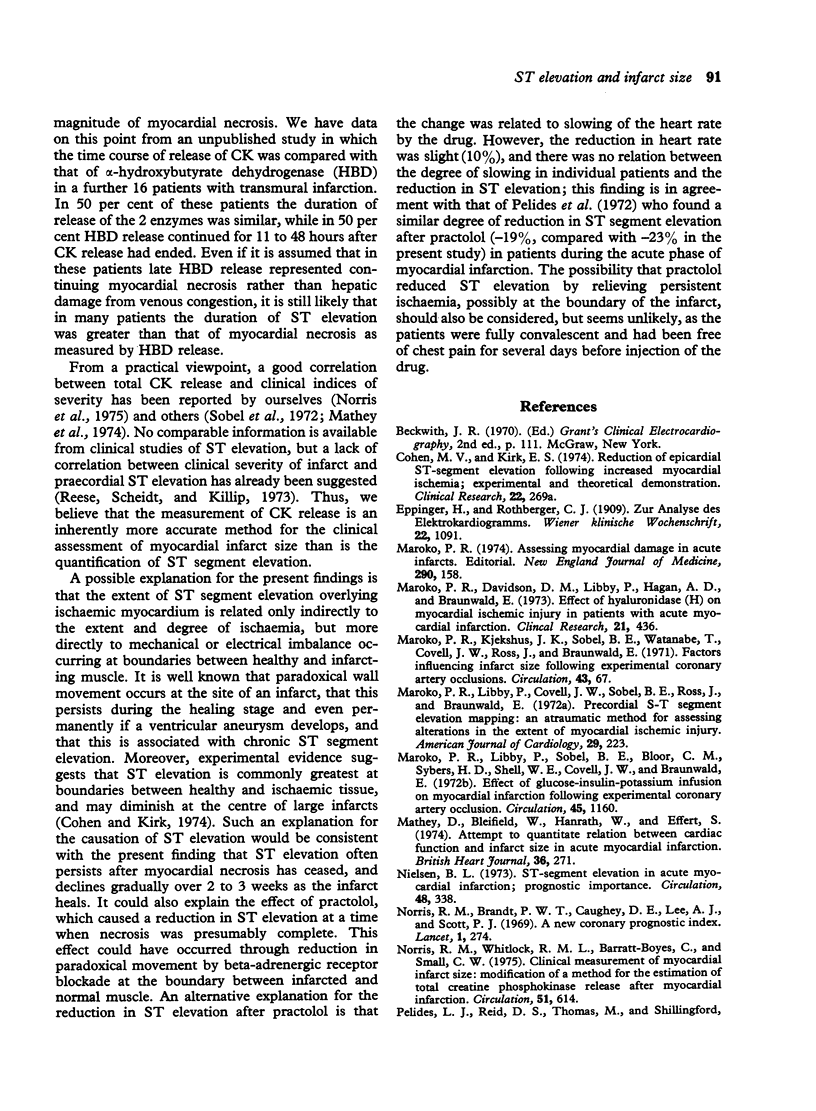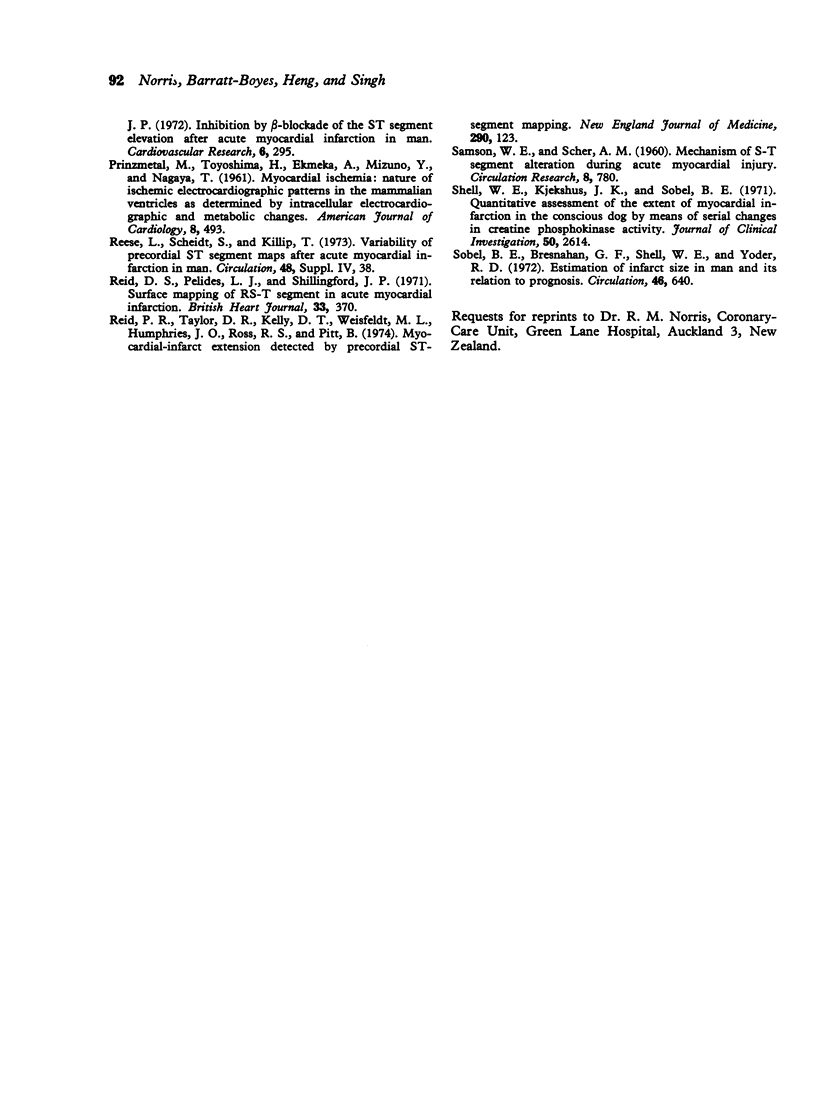Abstract
Praecordial ST segment elevation was measured at 35 electrode positions in each of 40 patients admitted to a coronary care unit after acute transmural anterior myocardial infarction. Serial praecordial electrocardiographic maps were recorded to determine (a) the time course as well as reproducibility of measurements of ST segment alterations, and (b) the degree of correlation between the magnitude of ST segment elevation and the severity of infarction, as assessed clinically or by sequential estimations of serum creatine kinase activity. Large variations in ST segment elevation were found in different patients with a comparable degree of myocardial damage, and at intervals of as little as four hours in the same patient. These variations were greater than could be explained by technical factors, and were not related to apparent changes in the patients' clinical status. The patterns of release of myocardial creatine kinase showed that the time course of ST segment elevation was longer than the period of myocardial necrosis. No correlation was found between the myocardial infarct size as determined by enzyme release and the highest levels of ST segment elevation recorded. The findings suggest that ST segment elevation as measured by praecordial electrocardiographic mapping does not constitute a reliable index of the size or severity of myocardial infarcts in man.
Full text
PDF